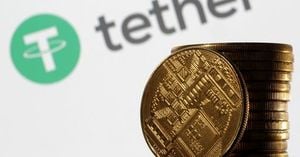Hamburg is gearing up for its Bürgerschaftswahl (state parliament election) on March 2, 2025, which marks a significant event for the city’s political future. With over 1.3 million eligible voters, this election will not only decide the composition of the Hamburg city parliament but will also reflect the political climate following the upcoming Bundestagswahl (federal election) scheduled for February 23, 2025.
At the forefront of election tools this year is the Wahl-O-Mat, which has been made available starting January 30, 2025. Developed by the Bundeszentrale für politische Bildung (Federal Agency for Civic Education), this online tool serves as a decision-making aid for voters who are unsure of which party to support. First introduced back in 2002, the Wahl-O-Mat allows users to compare their beliefs with those of the participating parties based on their responses to 38 political statements.
The process is straightforward: voters can choose to agree, disagree, or remain neutral to each statement. They also have the option to skip questions they feel indifferent about. Once completed, the program reflects which parties most closely align with the user's views. Thomas Krüger, President of the Bundeszentrale für politische Bildung, highlights the program's engaging nature, stating, "Der Wahl-O-Mat vermittelt auf unterhaltsame und spielerische Weise Informationen," which translates to "The Wahl-O-Mat provides information in an entertaining and playful way."
Among the 16 parties contesting for seats, the SPD (Social Democratic Party) has maintained strong support, having held leadership since 2011 under Peter Tschentscher, the current mayor. Polls indicate the SPD is projected to receive between 31% and 34% of the vote, making it likely for Tschentscher to continue as mayor following the election. The Greens follow, with polls showing their estimated share at 20% to 22%.
The CDU (Christian Democratic Union) and AfD (Alternative for Germany) are positioned far behind, expected to secure about 16% to 17% and 9% to 11%, respectively. The Left Party is also forecasted to receive around 5% to 6% support. Smaller parties such as the FDP (Free Democratic Party) and BSW (Sahra Wagenknecht Alliance) face uncertainty as they struggle to breach the 5% electoral threshold necessary for representation.
One of the pressing topics this election is the management of housing and urban development, alongside economic reforms. Dennis Thering, the CDU candidate, has emphasized the need for significant changes, stating, "Wir müssen die Bürokratie abbauen, wir müssen Start-up-Unternehmen fördern," meaning "We need to reduce bureaucracy, and we need to promote start-ups." Both security and the potential for economic growth through infrastructure development are heated topics among voters, especially amid rising concerns about living costs and housing shortages.
The Wahl-O-Mat not only enhances the voters’ ability to make informed choices but also serves as the foundation for examining party perspectives on issues such as affordability of housing, public transportation improvements, and climate change initiatives. According to Sabine Bamberger-Stemmann, Director of the Landeszentrale für politische Bildung, the tool provides Hamburg's citizens with the opportunity to align their opinions with those of the parties, stating, "Der Wahl-O-Mat gibt allen Hamburgerinnen und Hamburgern die Chance, ihre eigene Position mit denen der Parteien abzugleichen, " meaning "The Wahl-O-Mat gives all Hamburg citizens the chance to compare their own position with those of the parties."
Voter engagement is more important than ever during this election season. With looming concerns of voter apathy, tools like the Wahl-O-Mat can bridge the gap and promote increased participation. The last Bürgerschaftswahl saw approximately 334,000 users interacting with the Wahl-O-Mat, reflecting its utility and importance for civic engagement. This year, it is expected to play even a larger role, particularly as Hamburg participates just after the Bundestagswahl, keeping the political dialogue charged and relevant.
Conclusively, the Hamburg Bürgerschaftswahl on March 2, 2025, signifies not just another local election but also the potential to influence policy direction under the prevailing coalition and could shape future political dynamics within the city. With the support of resources such as the Wahl-O-Mat, it invites voters to take part actively and inform themselves on the matters they care about, ensuring their voices are heard and counted as they head to the polls.



